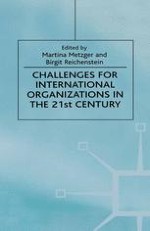2000 | OriginalPaper | Chapter
With a Little Help from NTBs: Why Reducing Tariffs Does not Lead to Free Trade
Author : Birgit Reichenstein
Published in: Challenges for International Organizations in the 21st Century
Publisher: Palgrave Macmillan UK
Included in: Professional Book Archive
Activate our intelligent search to find suitable subject content or patents.
Select sections of text to find matching patents with Artificial Intelligence. powered by
Select sections of text to find additional relevant content using AI-assisted search. powered by
‘If economists ruled the world, there would be no need for a World Trade Organization.’1 What Paul Krugman illustrates here in his characteristic pictorial way is the simple facts that, from an economic point of view, trade is mutually beneficial for the countries involved and there is no need for negotiations about reciprocal trade agreements as is the case with the General Agreement of Tariffs and Trade (GATT) now part of the World Trade Organization (WTO). For an economist free trade is essentially a unilateral matter; a country pursues its own interests best by creating free trade no matter what other countries do. There are exceptions to the argument for free trade, such as the ‘infant industries’ argument, the ‘optimal tariff’ argument and more recently ‘the new trade theory’.2 Nonetheless, in theory at least, a country should not have to demand reciprocal trade liberalization from a trading partner — an essential point in the GATT treaty — before lowering its own trade barriers. In pure economics terms it is hard to explain the existence of tariffs and the principle of reciprocity as enshrined in the GATT treaty. But fortunately — or unfortunately! — the world is not ruled by economists and those responsible for trade policy do not attach too much importance to the scientific findings of international trade theorists.
